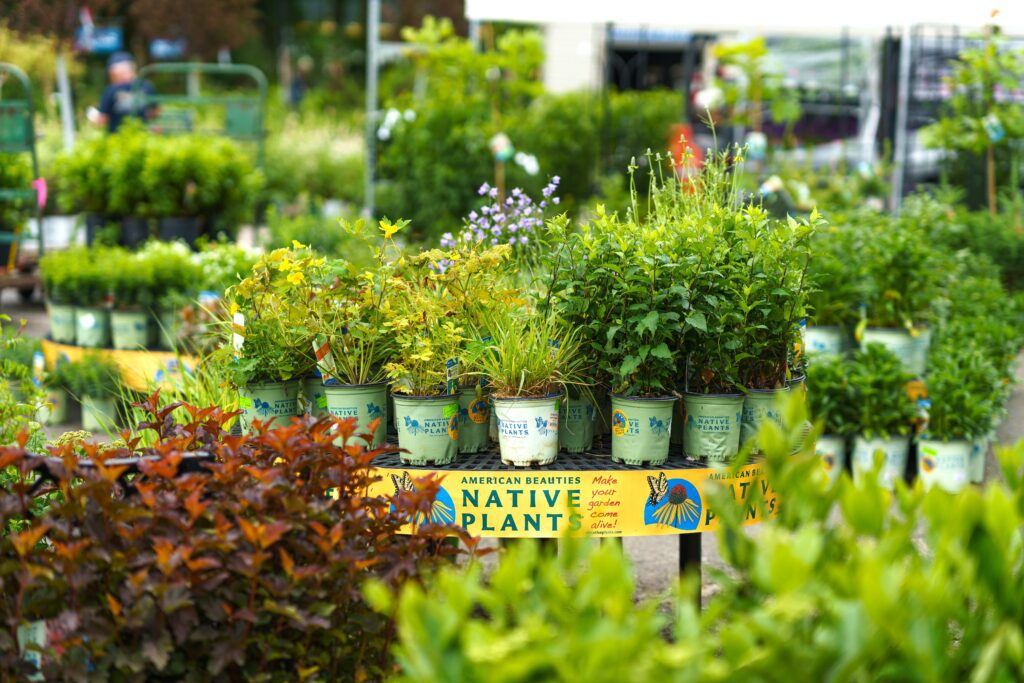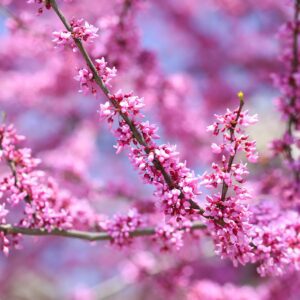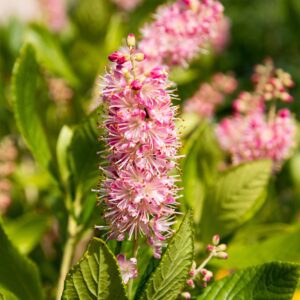May 26, 2025
Celebrate Native Plant Month with Mahoney’s!
June is Native Plant Month in Massachusetts, and it’s the perfect time to celebrate the plants that naturally call our region home. Native plants aren’t just beautiful—they’re hardworking, resilient, and incredibly important to local ecosystems. Whether you’re a seasoned gardener or just starting out, native plants offer a smart, low-maintenance way to create a thriving, sustainable landscape.

Why Choose Native Plants?
- They’re Adapted to Our Climate
Because they’ve evolved right here in New England, native plants are well-suited to our weather patterns and soil conditions. That means less watering, fewer pest problems, and less need for fertilizers or chemicals. - They Support Pollinators and Wildlife
Native plants provide vital food and shelter for local pollinators like bees, butterflies, and birds. By choosing native species, you’re helping preserve biodiversity and keep our environment healthy. - They’re Low Maintenance and Easy to Grow
Once established, native plants typically require less upkeep and water than non-native varieties. That means more time enjoying your garden—and less time fussing over it.
Why Bugs Are a Good Thing (Really!)
We get it—“attracting bugs” doesn’t always sound like a selling point. But here’s the thing: over 90% of North American bird species rely on insects to feed their young, even seed-eating birds like cardinals and finches. Without native plants to host those insects, our bird populations struggle to survive.
Native plants are the backbone of this delicate food web. They support native caterpillars, beetles, and other beneficial bugs—many of which you’ll barely notice, but birds absolutely depend on. If your landscape is filled with non-native plants that local insects can’t use, there’s less food for birds… and ironically, more lingering pests with fewer natural predators to keep them in check.
By planting natives, you’re not inviting a swarm—you’re creating balance. More birds, fewer pests, and a thriving ecosystem right in your backyard.
Our Top Native Plant Picks
Here are some of our favorite native trees, shrubs, and perennials that thrive in Massachusetts gardens:

Eastern Redbud (Cercis canadensis)
TREES
- Red Maple (Acer rubrum)
Beautiful red foliage in fall and a favorite for supporting native insects and birds.
- Serviceberry (Amelanchier spp.)
Offers four seasons of interest: early spring flowers, edible berries, brilliant fall color, and smooth gray bark in winter.
- Eastern Redbud (Cercis canadensis)
One of the first trees to flower in spring, Redbud produces rosy-pink blossoms right on its branches before the leaves emerge. A stunning ornamental native that’s great for smaller spaces and supports early pollinators.

Summersweet ‘Ruby Spice’ (Clethra alnifolia)
SHRUBS
- Winterberry Holly (Ilex verticillata)
A deciduous holly with bright red berries that persist into winter—great for birds and winter interest.
- Clethra (Clethra alnifolia, or Summersweet)
Fragrant white or pink blooms in mid-summer attract pollinators, and it does well in damp or shady spots.
- Northern Bayberry (Myrica pensylvanica)
Tough and salt-tolerant, perfect for coastal gardens with fragrant foliage and waxy berries.

Wild Columbine (Aquilegia canadensis)
PERENNIALS
- Purple Coneflower (Echinacea purpurea)
A pollinator favorite with long-lasting blooms and sturdy growth.
- Wild Columbine (Aquilegia canadensis)
Nods with red and yellow flowers in early spring that hummingbirds love.
- Blue Wood Aster (Symphyotrichum cordifolium)
Late-season blooms provide crucial food for pollinators and bring soft blue color to fall gardens.
Planting Native? We Can Help!
Not sure where to start? Stop into your nearest Mahoney’s Garden Center—we’d love to help you find the perfect native plants for your space. Our team can guide you toward plants that match your sunlight, soil, and style. This June, celebrate Native Plant Month by creating a garden that gives back.
